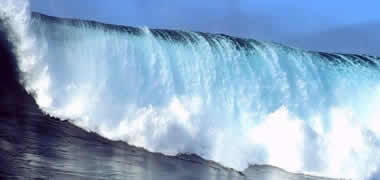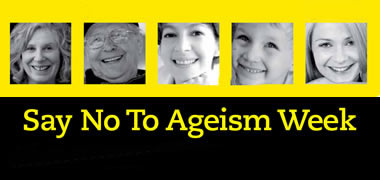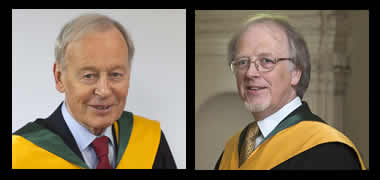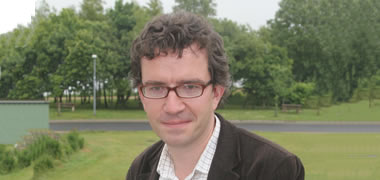-
Courses

Courses
Choosing a course is one of the most important decisions you'll ever make! View our courses and see what our students and lecturers have to say about the courses you are interested in at the links below.
-
University Life

University Life
Each year more than 4,000 choose University of Galway as their University of choice. Find out what life at University of Galway is all about here.
-
About University of Galway

About University of Galway
Since 1845, University of Galway has been sharing the highest quality teaching and research with Ireland and the world. Find out what makes our University so special – from our distinguished history to the latest news and campus developments.
-
Colleges & Schools

Colleges & Schools
University of Galway has earned international recognition as a research-led university with a commitment to top quality teaching across a range of key areas of expertise.
-
Research & Innovation

Research & Innovation
University of Galway’s vibrant research community take on some of the most pressing challenges of our times.
-
Business & Industry

Guiding Breakthrough Research at University of Galway
We explore and facilitate commercial opportunities for the research community at University of Galway, as well as facilitating industry partnership.
-
Alumni & Friends

Alumni & Friends
There are 128,000 University of Galway alumni worldwide. Stay connected to your alumni community! Join our social networks and update your details online.
-
Community Engagement

Community Engagement
At University of Galway, we believe that the best learning takes place when you apply what you learn in a real world context. That's why many of our courses include work placements or community projects.
2009
All 2009
New Research to Look at Young Carers in Ireland

Tuesday, 19 May 2009
A nation-wide research study into young carers in Ireland has begun at NUI Galway's Child and Family Research Centre. The research will look at the impact that providing care to a family member has upon a young person's life and will explore ways of better supporting these young carers. The study has been commissioned by the Office of the Minister for Children and Youth Affairs. NUI Galway researchers involved in the study are trying to identify children and young people, aged 5-17, who provide care to a family member in the home, perhaps due to disability or illness. The research team has already begun to interview young carers about their experiences and hope to identify more who would be willing to take part in the study. All information will be treated confidentially according to strict ethical guidelines and interviews should take no more than an hour to complete at a venue to suit the young person. According to Dr Allyn Fives, a member of the research team at NUI Galway: "We don't have accurate data on just how many young people care for a member of their family. While the most recent census tells us that approximately 3,000 young people between the ages of 15 and 17 are carers, it does not give a figure for the many young people below that age group. Also, very little is known about their day to day experiences, or the kinds of help and assistance that would benefit them. This is partly because not many studies have focused on the experiences of young carers in Ireland, and also because there is a wide variety of caring situations and experiences". Dr Fives added: "Young carers are asked to do different kinds of tasks and they have different levels of responsibility. Their caring has different impacts on other parts of their lives, including school work, sports and other recreational activities, and their friendships and family life. These young people contribute so much to their families that we hope this research will show us how they themselves can be supported in their vital role". Those interested in getting in touch with researchers at the NUI Galway Child and Family Research Centre can call Dr Fives on 091 495732 or email allyn.fives@nuigalway.ie -ends-
>> Read full story about New Research to Look at Young Carers in Ireland
The Making of Galway Bay – A Tale of Earthquakes, Tsunami, Great Storms and Clim

Monday, 18 May 2009
To celebrate the arrival of the Volvo Ocean Race in Galway a free public talk entitled 'The Making of Galway Bay' will be held at 6pm on Monday, 25 May, in the Cairnes Lecture Theatre, Arts/Science Concourse, NUI Galway. Delivering the lecture will be Professor Mike Williams, Head of Earth and Ocean Sciences at NUI Galway, who has spent many years researching the natural history of Galway Bay and the Aran Islands. According to Professor Williams, "The talk will be a tale of earthquakes, tsunami, great storms and climate change that have, over thousands of years, shaped Galway Bay into what it is today. While Galway Bay has been romanticised in song, natural forces have been far from loving. In 1755, the Lisbon earthquake triggered a tsunami which swept up the Bay, damaging the Spanish Arch and drowning many citizens. Our brave city, perched on the Atlantic coast, also took the brunt of the one of the biggest storms Europe has ever known in 1839. It was referred to at the time, in understated fashion, as 'the night of the big wind'. Much of the Professor's work centres on identifying the sedimentary fingerprints of tsunami and extreme storm waves along Ireland's cliff faces. He comments: "Ridges preserved on the cliffs of the Aran Islands and Co. Clare are up to 50 metres above sea level, and offer a perfect natural laboratory in which to study the natural history of Galway Bay". Professor Williams has published papers on wave, climate, and coastal erosion. During his talk he will outline some recent discoveries on the history of Galway Bay, which stretches back over 15,000 years. As the talk is being held on Africa Day of the Volvo Ocean Race, it is also supporting Zikomo Ireland, a Galway-based African charity group. -ends-
>> Read full story about The Making of Galway Bay – A Tale of Earthquakes, Tsunami, Great Storms and Clim
NUI Galway to Mark 'Say No to Ageism Week'

Monday, 18 May 2009
The Irish Centre for Social Gerontology (ICSG) is organising two free public events to mark 'Say No to Ageism Week', 18-22 May. The ICSG is Ireland's first multi-disciplinary research centre dedicated to the study of the economic and social aspects of ageing in Ireland. Ageism is a set of attitudes and practices that are based on stereotyped, usually negative, assumptions about older people. For example, older people may be assumed to be inflexible in their attitudes, uninterested in their work, physically and/or mentally incapable, unattractive or sexually inactive simply because of their age. These attitudes may be held by key individuals such as employers, managers and service-providers. They may simply be practices that develop over time as opposed to being a deliberate attempt to discriminate. Professor Eamon O'Shea, Director of the ICSG at NUI Galway, says: "Ageism makes no sense economically, culturally or socially. Let's challenge and defeat it so that all citizens can reach their economic and social potential no matter what their age". In terms of employment practices, ageism can mean that older people are not seen as serious contenders for promotion, leading to age discrimination. The idea that people are 'too old to be promoted' at 50, 45 or even 40 is prevalent in some large organisations. Áine Ní Léime is a researcher with the ICSG at NUI Galway, and comments: "There is increasing evidence that ageism exists in Irish society. Ageism was the most common ground for complaint to the Equality Authority, under the Employment Equality Acts, in 2007. The events planned for "Say No to Ageism Week" are designed to highlight awareness of and discussion about attitudes to older people in Ireland, with a view to ultimately helping to combat ageism in Irish society". On Tuesday, 19 May, a seminar in NUI Galway's Moore Institute at 1pm entitled 'An Age-friendly Society in a time of Recession' will feature Niall Crowley, former CEO of the Equality Authority. All are welcome to come along. In the same venue, on 21 May at 11am, a three-hour AgeWise workshop run by trainers from Age & Opportunity will take place. This participatory workshop aims to provide information on older people and ageing in Ireland and to challenge myths and stereotypes. The workshop will enable participants to understand the personal, cultural and structural effects of ageism. It will also serve to identify instances of discrimination against older people and help devise strategies to counter discrimination in their workplace or community. The workshop is organised by the ICSG and the Equality Office at NUI Galway, to register for this free event, please contact NUI Galway's Brenda Fallon by e-mail at brenda.fallon@nuigalway.ie -ends-
>> Read full story about NUI Galway to Mark 'Say No to Ageism Week'
Highest Honour for NUI Galway Academic Admitted to the Royal Irish Academy

Monday, 18 May 2009
(Leagan Gaeilge) Today (15 May 2009), Dr Nollaig Ó Muraíle of NUI Galway, will be admitted as a Member of the Royal Irish Academy (RIA) in a special ceremony in Dublin. Election to the Royal Irish Academy is the highest honour available to a scholar working on the island of Ireland. Nollaig Ó Muraíle is Senior Lecturer in the School of Irish at NUI Galway. He has made a unique contribution to the study of Irish genealogies through his edition and translation of Leabhar Mór na nGenealach or "The Great Book of Irish Genealogies", which has been described as one of the most unique contributions to Irish history ever. Professor Nicholas Canny, President of the Royal Irish Academy, said: "The Academy s new members are amongst a small group of academics in Ireland that set the international hallmark of excellence in their fields of study". Professor Canny is former Vice President for Research at NUI Galway (2005-2008). Dr Noel Dorr was also admitted as a Member of the RIA today. Dr Dorr is Chair of the NUI Galway Governing Authority and former Secretary General of the Department of Foreign Affairs (1987-1995). He received an honorary doctorate from NUI Galway in 2001. Interestingly, both Dr Ó Muraíle and Dr Dorr are former pupils of St Nathy's College, Co Roscommon. The criterion for election to membership is a significant contribution to scholarly or scientific research as shown in the candidate's published academic work. Membership of the Academy, which is by peer nomination and election, is limited to those scientists and scholars normally resident in Ireland. About the Royal Irish Academy The Royal Irish Academy is an all-Ireland, independent, academic body that promotes study and excellence in the sciences, humanities and social sciences. It is the principal learned society in Ireland. For 224 years membership of the Royal Irish Academy has been keenly competed for, as it is the highest academic honour in Ireland and a public recognition of academic achievement. There are now over 420 Members of the Academy, in disciplines from the sciences, humanities and social sciences. Those elected are entitled to use the designation MRIA after their name. Among the membership of the Academy are many of Ireland s leading scholars, the best known of whom include: Professor Seamus Heaney, Nobel Laureate; Professor Patrick Cunningham, geneticist and the government s Chief Scientific Adviser; Professor Frances Ruane, economist; Dr Garret FitzGerald, economist and former Taoiseach; and Dr Peter Harbison, archaeologist. The Academy has also more than 60 distinguished Honorary Members, who in the past have included J.W. Von Goethe, Maria Edgeworth, Albert Einstein and Max Born. Today the Honorary Members include Nobel Laureates, Murray Gell-Mann, Steven Weinberg and Sir Andrew Huxley. Further information can be found on www.ria.ie Comhalta Foirne OÉ Gaillimh ina Bhall Nua d'Acadamh Ríoga na hÉireann (View in English) Inniu (15 Bealtaine 2009) ag searmanas speisialta i mBaile Átha Cliath glacfar leis an Dr Nollaig Ó Muraíle ó OÉ Gaillimh mar Bhall d'Acadamh Ríoga na hÉireann (RIA). Is é seo an onóir acadúil is mó is féidir a bhronnadh ar scoláire atá i mbun oibre ar oileán na hÉireann. Tá Nollaig Ó Muraíle ag obair mar Léachtóir Sinsearach i Scoil na Gaeilge in OÉ Gaillimh. Chuir saothar an Dr Ó Muraíle Leabhar Mór na nGenealach go mór lenár dtuiscint ar ghinealas na hÉireann agus go deimhin deirtear go bhfuil an leabhar áirithe seo ar cheann de na saothair is tábhachtaí a foilsíodh riamh i stair na hÉireann. Ba é an Dr Ó Muraíle a chuir an saothar in eagar agus a rinne an t-aistriúchán. Dúirt an tOllamh Nicholas Canny, Uachtarán Acadamh Ríoga na hÉireann: "Áirítear baill nua an Acadaimh i measc grúpa beag acadóirí atá ag obair in Éirinn, daoine a bhfuil ag éirí leo saothar ar ardchaighdeán a sholáthar ina réimsí léinn féin". Bhí an tOllamh Canny ag obair mar Leas-Uachtarán um Thaighde in OÉ Gaillimh idir 2005-2008. Glacadh leis an Dr Noel Dorr mar bhall d'Acadamh Ríoga na hÉireann inniu freisin. Is é an Dr Dorr Cathaoirleach Údarás na hOllscoile in OÉ Gaillimh agus chaith sé na blianta idir 1987-1995 ag obair mar Ard-Rúnaí sa Roinn Gnóthaí Eachtracha. Bhronn OÉ Gaillimh dochtúireacht oinigh air in 2001. Spéisiúil go leor, is iarscoláirí de chuid Choláiste Nathaí i gCo. Ros Comáin an Dr Ó Muraíle agus an Dr Dorr. Roghnaítear baill d'Acadamh Ríoga na hÉireann bunaithe ar shaothar scolártha nó ar thaighde eolaíoch a léirítear in obair acadúil foilsithe an iarrthóra. Eolaithe agus scoláirí a bhfuil cónaí orthu in Éirinn a bhíonn ina mbaill den Acadamh, agus is bunaithe ar ainmniúchán ó phiaraí agus toghchán a roghnaítear baill nua d'Acadamh Ríoga na hÉireann. Acadamh Ríoga na hÉireann Comhlacht neamhspleách, acadúil, uile-Éireann é Acadamh Ríoga na hÉireann a bhfuil sé mar aidhm leis staidéar agus ardchaighdeán a chothú sna heolaíochtaí, sna daonnachtaí agus sna heolaíochtaí sóisialta. Is é Acadamh Ríoga na hÉireann príomhchumann léannta na hÉireann. Le 224 bliain anuas tá iomaíocht ghéar ann le ballraíocht a bhaint amach in Acadamh Ríoga na hÉireann, agus is ionann ballraíocht san Acadamh agus an onóir acadúil is airde is féidir a fháil in Éirinn mar aon le haitheantas poiblí ar éachtaí acadúla. Tá breis is 420 Ball ag Acadamh Ríoga na hÉireann anois, scoláirí a bhfuil a gcuid taighde dírithe ar na heolaíochtaí, ar na daonnachtaí nó ar na heolaíochtaí sóisialta. Tá cead ag baill thofa Acadamh Ríoga na hÉireann 'MRIA' a scríobh i ndiaidh a n-ainm. Áirítear go leor de scoláirí mór le rá na hÉireann i measc bhaill Acadamh Ríoga na hÉireann, An tOllamh Seamus Heaney, Buaiteoir Duais Nobel; An tOllamh Patrick Cunningham, géineolaí agus Príomhchomhairleoir Eolaíochta an Rialtais; An tOllamh Frances Ruane, eacnamaí; An Dr Garret FitzGerald, eacnamaí agus iar-Thaoiseach; agus an Dr Peter Harbison, seandálaí, ina measc. Tá breis is 60 Comhalta Oinigh ag an Acadamh, J.W. Von Goethe, Maria Edgeworth, Albert Einstein agus Max Born ina measc in imeacht na mblianta. I measc na gComhaltaí Oinigh reatha tá Buaiteoirí Duais Nobel Murray Gell-Mann, Steven Weinberg agus Sir Andrew Huxley. Tá tuilleadh eolais le fáil ag www.ria.ie -Críoch-
>> Read full story about Highest Honour for NUI Galway Academic Admitted to the Royal Irish Academy
Tánaiste Announces BioSpark to Create 180 New Green Jobs

Friday, 15 May 2009
The Energy Research Centre at NUI Galway to Support New Product Development BioSpark, the newly-formed joint venture between Imperative Energy Ltd and Sustainable BioPolymers Ltd, is today announcing its intention to invest €40 million in the development of a next generation bio-processing research, innovation and manufacturing centre at Claremorris, County Mayo, which will create 180 new high value jobs within the local and regional economy with the realistic potential to grow to 300 jobs within three years. The BioSpark development, which is to be located at a 22-acre site close to the town of Claremorris, will incorporate the following elements: 20,000 tonne per annum bio-processing facility, utilising next generation technologies and techniques for the conversion of organic material such as straw and wood biomass into multiple high value bio-based products such as ethanol, lactic acid, lignin, methane and hydrogen state-of-the-art laboratory facilities for bio-processing research and innovation 60,000 tonne per annum wood pellet production facility, which will be the largest and most advanced on the island of Ireland 20MWth/5MWe CHP plant which will be fired on biomass and connected to the national grid via a sub-station in close proximity to the site 17 commercial units to house a cluster of related business ventures. The co-location of all of these elements is specifically designed to extract the maximum value from locally produced biomass in a model that is completely sustainable from both an environmental and an economic point of view. The biomass is used to produce industrial bulk and speciality bio-based compounds, which today are predominantly derived from the refining of oil, and which form essential inputs for a wide range of major global industries from pharmaceuticals to paints and plastics. At the same time, the biomass is also used to generate large quantities of renewable heat and power, making the whole facility not only completely self-sufficient in terms of its energy use, but also providing enough green energy to support district heating and cooling systems for the Claremorris area. Making the announcement The Tánaiste and Minister for Enterprise, Trade and Employment, Mary Coughlan T.D., said: The impact of 180 high level jobs in County Mayo cannot be over emphasised. Certainly the construction jobs during the building phase will be a boost to the local economy; however, it is the sustainable jobs of the ultimate workforce that will be a real driver to the local and regional economy." "The BioSpark project is not just impressive at a County Mayo level, this is a project that will impress on an international scale and sends a strong message that the conditions are right for new businesses to setup in Ireland. Bioprocessing has been talked about for some time but this is the first real manifestation of a commercial scale facility with such a strong focus on innovation and R&D", the Tánaiste added. The total development will cost €40m and will be constructed over the next two years, subject to planning approval. The regional and national impact of the development will be: 120 jobs during construction 80 full-time positions post-construction – mostly high skilled, engineering roles engaged in R&D, manufacturing and operations management 100 upstream jobs in harvesting, transportation and supply chain management a further potential 120 high value jobs at the BioSpark Claremorris centre within three years of its completion, as new business ventures are spun off €18m yearly spend on locally sourced goods and services significant Intellectual Property (IP) relating to process enhancements as well as new product developments, which will be primarily coordinated through the Energy Research Centre at NUI Galway significant displacement of imported fossil fuels and fossil fuel derived products ready availability of green energy to the Claremorris area to support further inward investment in commercial, industrial and residential developments, similar to well-established district heating schemes in countries like Sweden and Finland. Professor Vincent O'Flaherty is Director of the Energy Research Centre at NUI Galway and says there are many future returns to be had from today's announcement: "Ireland's geographical location, our natural resources and our existing research base put us in a very strong position to take full advantage of the emerging green knowledge economy. This project is world-class and the ideal platform for Ireland to develop high-tech solutions for the global sustainable energy market. Our research centre's multi-disciplinary team looks forward to working with BioSpark to maximize its R&D potential". Bio-processing builds on one of Ireland's natural competitive advantages – our ability to grow biomass quicker and more productively than anywhere else in Europe – and BioSpark is designed to maximise the value that be gained from that fact. The BioSpark development at Claremorris is the first of a number of similar facilities that the promoters of the project – Imperative Energy Ltd and Sustainable Biopolymers Ltd - are planning to replicate across Ireland, the UK and North America. -ends-
>> Read full story about Tánaiste Announces BioSpark to Create 180 New Green Jobs















